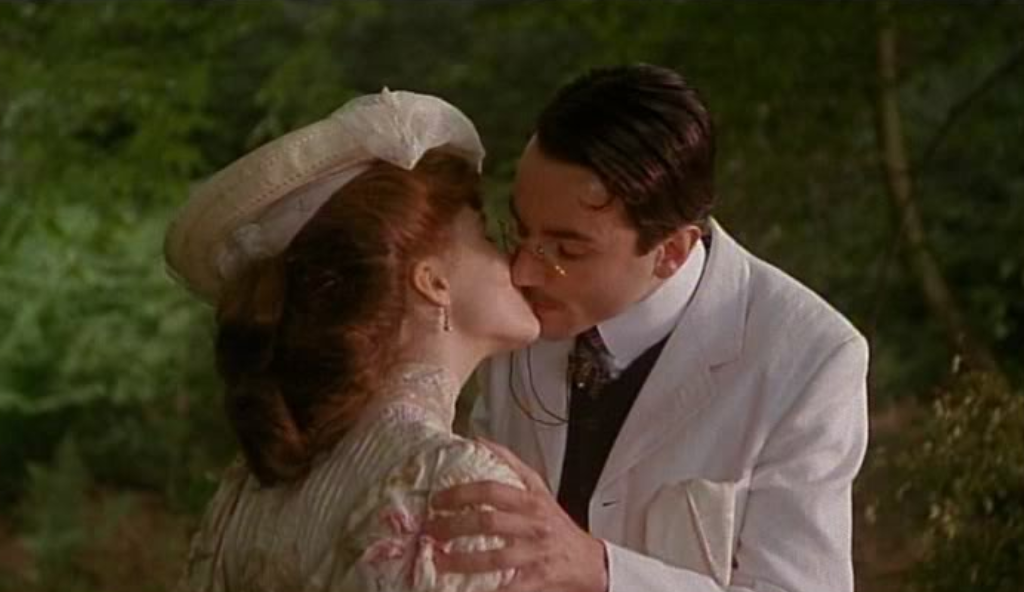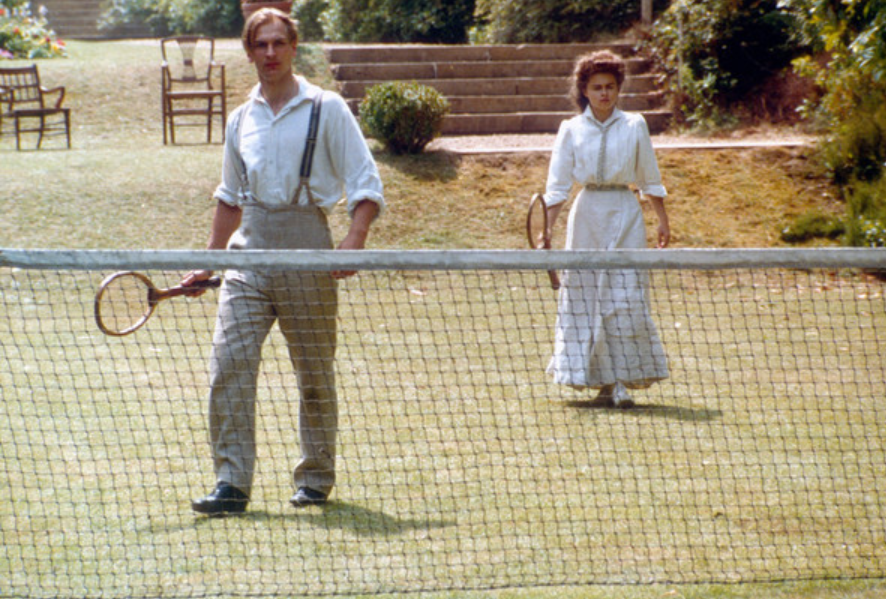In E.M. Forester’s novel, A Room with a View, being a spoil sport on the tennis court equates to being a spoil sport in life. Lucy Honeychurch cites her betrothed Cecil Vyse’s unwillingness to make up a fourth in doubles one afternoon at Windy Corners, her family country home, as the reason to break their engagement:
“Mr. Emerson had to go.”
“What a nuisance! That spoils the four. I say, Cecil, do play, do there’s a good chap. It’s Floyd’s last day. Do play tennis with us, just this once.”
Cecil’s voice came: “My dear Freddy, I am no athlete. As you well remarked this very morning. ‘There are some chaps who are no good for anything but books;’ I plead guilty to being such a chap, and will not inflict myself on you.”
The scales fell from Lucy’s eyes. How had she stood Cecil for a moment? He was absolutely intolerable, and the same evening she broke off her engagement.
She explained:
“There are days when one sees clearly, and this is one of them. Things must come to a breaking point some time, and it happens to be today. If you want to know, quite a little thing decided me to speak to you – when you wouldn’t play tennis with Freddy.”
“I never do play tennis,” said Cecil, painfully bewildered; “I never could play….”
“You can play well enough to make up a four. I thought it abominably selfish of you.”
The above passage is one of the few in the novel which evoke sympathy for Vyse, an unmitigated snob who labels himself an “’Inglese Italianato,’…’E un diavolo incarnato,’ you know the proverb?” There is nothing worse than a literature-quoting confidant who asks if you so happen know their obscure reference, and while Lucy did not, she knew enough that the label did not “seem applicable to a young man who had spent a quiet winter in Rome with his mother.”
Vyse wants to marry Lucy to possess her as an object to mold and cultivate to his own taste, to fit her into the play of his life. For Lucy, tennis becomes the pretext because the real reason why Lucy broke the engagement is the kiss (or “bacio,” as Vyse would arrogantly say) between Lucy and George Emerson in the countryside of Florence:
She had fallen onto a little open terrace, which was covered with violets from end to end… From her feet the ground sloped sharply and violets ran down in rivulets and streams and cataracts, irrigating the hillside with blue, eddying round the tree stems, collecting into pools in the hollows, covering the grass with spots of azure foam….
George had turned around at the sound of her arrival. For a moment he contemplated her, as one who had fallen out of heaven. He saw radiant joy in her face, and he saw the flowers beat against her dress in blue waves. The bushes above them closed. He stepped quickly forward and kissed her…..
It was that kiss, expressing their mutual passion in an heavenly field, which kindled their love for each other. Yet Lucy suppressed these newly-found feelings and, after returning to England, became betrothed to Vyse.
Vyse, on the other hand, asked permission to kiss Lucy, and she agreed:
At that supreme moment, he was conscious of nothing but absurdities. Her reply was inadequate. She gave such a businesslike lift of her veil. As he approached her he found time to wish that he could recoil. As he touched her, his gold pince-nez became dislodged and was flattened between them.
Such was the embrace. He considered, with truth, that it had been a failure. Passion should believe itself irresistible. It should forget civility and consideration and all the other curses of a refined nature. Above all, it should never ask for leave where there is a right of way…. He recast the scene. Lucy was standing flowerlike by the water, he rushed up and took her in his arms; she rebuked him, permitted him and revered him ever after for his manliness. For he believed that women revere men for their manliness.
While the kisses are not themselves descriptive, the way in which Forester sets the scene allows the imagination to fill in the blanks. Emerson kissed Lucy in a way that Vyse could only imagine, and both kisses reveal where the novel happily ends, with Lucy Honeychurch and George Emerson married, and liberated by and in Italy.
The 1985 Merchant-Ivory film is equally delightful as the novel. Cecil Vyse was played by 27-year old Daniel Day Lewis, and it was one of the first films that widely introduced him to movie-going audiences. The exact same day the film was released, My Beautiful Laundrette was also released, starring Day Lewis, and many were amazed it was the same actor. There was a such a contrast between Day Lewis’s characters, one a gay man in love with a Pakistani business man in modern day London and the other, a persnickety and asexual fop in Victorian England. (As an aside, if you watch Richard Attenborough’s 1982 film Ghandi, pay attention and you will find Day Lewis playing a bit part as a racist street thug in South Africa).
But the take away from A Room with a View is that if asked to make a fourth in doubles, say “yes” without hesitation, and if you’re going to kiss, kiss with passion.



